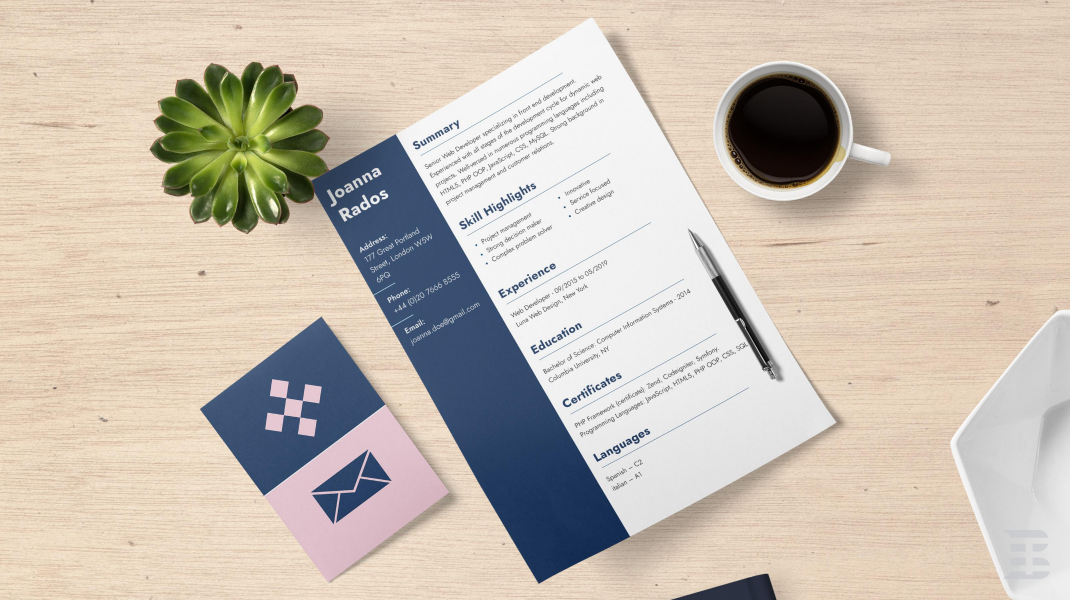How to Boost Your CV as a Beginner to Attract Recruiters

If you’re sending out job applications without much success, it may have to do with your CV. With many job postings attracting hundreds or even thousands of CVs, your CV is your first, and in most cases, only chance to make a good impression with employers.
Your CV is essentially a marketing document that sells your skills, experience and what you have to offer to employers. You use it to show prospective employers why you’re the best candidate for the job and the benefits of having you in the team. That’s why it’s critical to make sure your CV is read and not rejected by recruiters.
If you’re at the start of your career, writing a CV can feel daunting. In our guide, we explain how to boost your CV as a beginner to attract recruiters.
Include a personal statement
When a recruiter first opens your CV, their eyes will be drawn to the top section. You can make sure you grab the attention of busy recruiters by including a compelling personal statement, in order to present yourself in the best possible light.
Also known as a personal profile or personal summary, a personal statement is a brief paragraph that summarises your work experience, skills and achievements with the aim to encourage recruiters to read your CV in full.
Not only is this a quick way to introduce yourself to prospective employers, but it also makes it easy for them to quickly determine whether you’re the right candidate for the job.
Correctly format your CV
The formatting of your CV could make it difficult for recruiters to pick out important information or for ATS (Automated Tracking Systems) to scan keywords.
As recruiters typically spend little more than seven seconds on CVs, it’s important to make it as easy as possible for them to see why you’re the ideal candidate.
This means making your CV clear and easy to read. The good news is that you can do this with a few simple formatting changes, whether that’s dividing your CV sections clearly, making use of white space or using bullet points to list your responsibilities and achievements.
When it comes to formatting, many things can go wrong. To save time on the layout of your CV, it’s worth considering using CV templates. As they’re already designed, all you need to do is fill in your information.
Leave out irrelevant information
Irrelevant information is any work experience or skills that don’t directly relate to the job description. For example, if you’re applying for an events coordinator position, you wouldn’t need to include your part-time job in the local garden centre, unless you specifically highlight your customer service skills. Relevant experience, in this case, would be your internship as a social media manager.
As a CV has limited space (2 A4 pages at most), it’s critical to prioritise information that directly demonstrates your suitability for the role. While it’s best not to have any gaps in your CV, you can bundle positions or periods of employment together.
Alternatively, you could use a functional or skills-based CV format, where the focus is on your experience and skills.
Lead with internships and volunteer work experience
As a beginner, you may not have much in the way of work experience. This can make it difficult to get noticed by employers.
One way to demonstrate practical work experience is to lead with internships and volunteer work experience on your CV to show employers that you have the necessary experience for the job.
Be sure to include activities of value such as organising events, managing cash, social media management, etc. rather than photocopying or coffee runs, as these tell employers little about the skills you gained.
You can either list your internships and volunteer work experience in the work experience section of your CV or under separate headings.
Emphasise achievements over responsibilities
When writing your CV, you need to mention your basic tasks and responsibilities for each of your roles and also demonstrate the impact you made in your work. Therefore, it’s important to emphasise your achievements, not your responsibilities.
Not only does this give recruiters a good idea of what you could potentially bring to the company, but you also differentiate yourself from other candidates.
To identify your accomplishments, it can be helpful to consider questions such as whether you developed a new system or procedure, you led a project, identified and resolved a problem, served x number of customers within an hour, etc.
Even if you’ve never had a job before, you most likely have this experience from part-time jobs, volunteer work experience, internships or extracurricular activities.
Talk about your skills and strengths
As employers are usually looking for a specific set of skills, it’s important to read through the job description carefully. These can be related to your professional experience (hard or technical skills) or your personality traits (soft or interpersonal skills).
Generally, hard skills are those you learn in school or on the job and can include things like: operating certain software or machinery, speaking a foreign language or analysing data.
Soft skills, on the other hand, describe how you communicate and work with others, make decisions, lead on projects or adapt yourself to difficult situations, for example. These can include communication skills, leadership skills, flexibility, problem-solving, etc.
As a jobseeker, it’s best to include a combination of hard and soft skills in your CV to show employers that you’re a well-rounded candidate. You can either list your skills in a separate section or incorporate them into the work experience section of your CV.